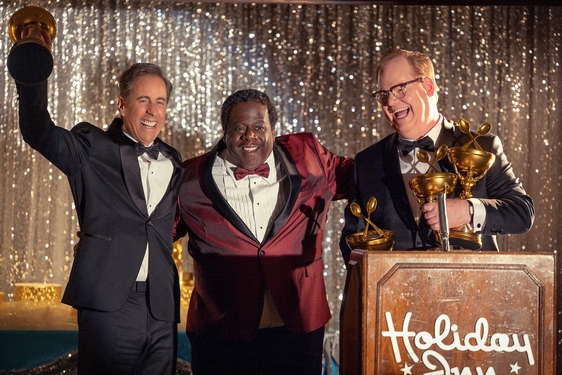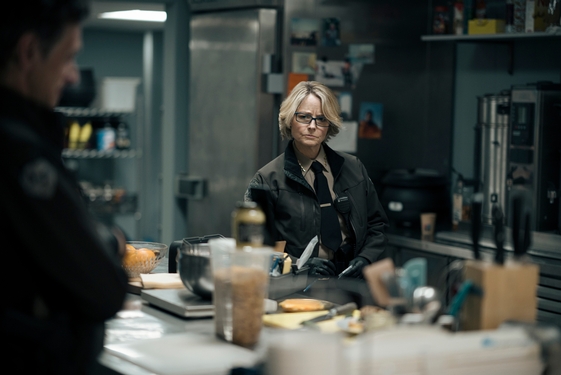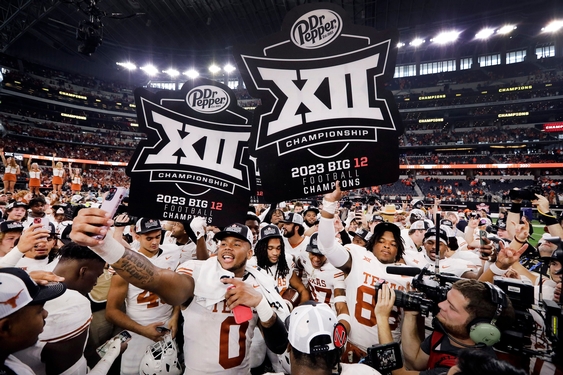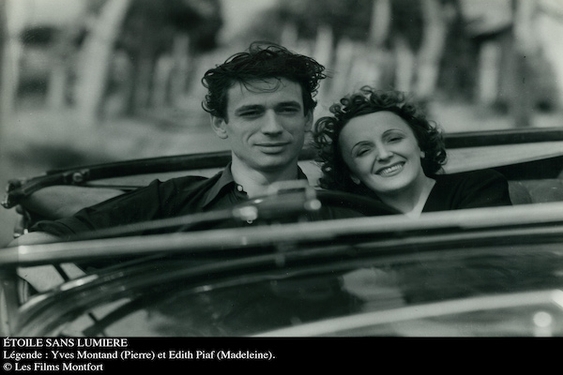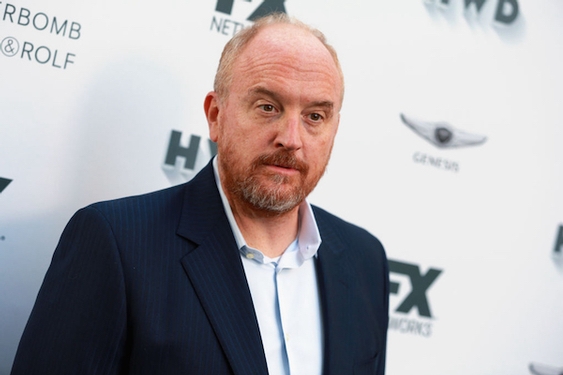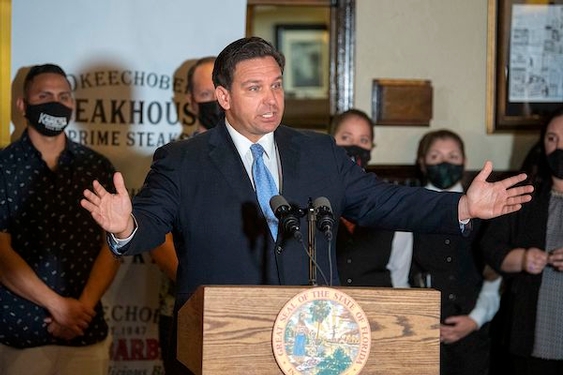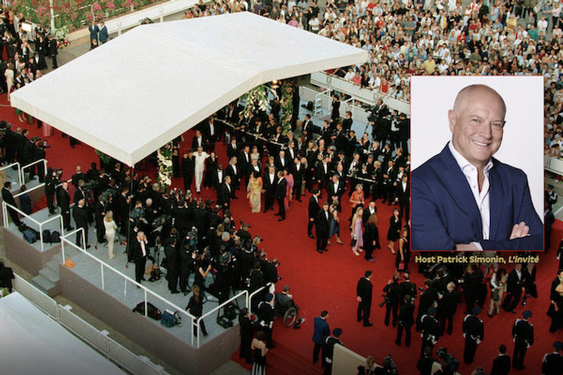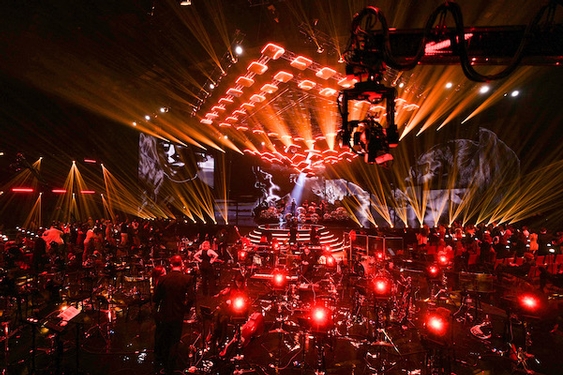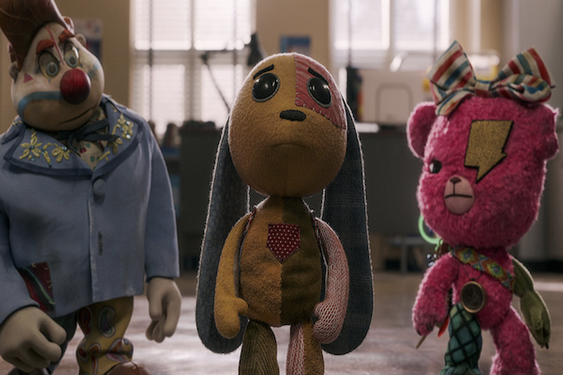The music-industry drama, just recently so youthful and full of promise, is now on life support: HBO’s “Vinyl” bombed so hard it contributed to a network shakeup, ABC canceled “Nashville” (subsequently rescued by CMT), and even Fox’s “Empire” had a rocky sophomore year.
A hero was obviously required, and like an endearing lead from one of his own movies, Cameron Crowe rode onto the television landscape to aid the nascent genre.
Which he then wound up trampling to death.
“Roadies,” Crowe’s valentine to the unsung heroes of music tours, is an under-done mess of panic passing for passion in which everyone talks a lot about how much they love music while no one actually seems to.
Despite considerable aid from Ron White as road manager Phil and rapper Machine Gun Kelly, a.k.a. Colson Baker, as Wesley, a Pearl Jam roadie-reject, Crowe seems overwhelmed by the idea of a multiple-hour serial and quickly abandons any groundbreaking intentions for the comforting confines of a nighttime soap.
“Roadies” is heavy on absurd interoffice romance and light on everything else, including the Whole Purpose of the Show: backstage color.
If “Roadies” spent half as much time showing us what roadies actually do as it wastes on framing gazes of tortured longing, it would be a very different, which is to say a much better, show.
Instead, viewers get tossed a few slivers of meat — Phil tearing up whenever he mentions Ronnie Van Zant, Keisha Castle-Hughes’ engineer setting up for the “song of the day” — and a whole lot of corn.
Opening with the cable-standard naked-breasts sex scene, used here to establish the equally standard horndog insecurities of Luke Wilson’s tour manager Bill (the breasts belong to a young woman who is delighted that he is so old) along with his self-destructive tendencies (she is also the barely legal daughter of the promoter), the pilot quickly moves to the if-possible-even-more standard thwarted romantic tension between its two main leads: Bill and the band’s production manager, Shelli (Carla Gugino).
There is no actual chemistry between these two characters, but the script requires everyone to pretend that there is. “Are you guys married?” quickly becomes the show’s “Hi Bob” shot-trigger, shots being something that might actually help. A lot.
Bill is divorced but Shelli is not — her husband works for Taylor Swift, which means that A) she never sees him and B) the experiences of this band, the fictional Staton-House, will always seem laughably low-rent in comparison because who doesn’t like a good Taylor Swift joke as long as it isn’t mean. Which it never is.
Also designed to attract the demographic too young to have seen “Almost Famous” (which is referenced almost immediately by a known groupie/stalker), is Kelly Ann (Imogen Poots), a Kate Winslet lookalike accessorized with a tendril-enhancing headscarf and a super-cool skateboard who, when we meet her, is about to leave for film school.
Until, that is, she gets a glimpse of some guy in a sports jacket walking in with the opening band.
He isn’t just some guy, and he isn’t with the band, either. Played by Rafe Spall, he is Reg Whitehead (I know, I know), that British guy corporate always sends when serious downsizing is required. (Really, we should be grateful he isn’t called Nigel.)
Here to get the band back on budget, Reg is everything ol’ free-spirit Kelly Ann despises, except that she sort of, kind of, instantly loves him. Which, with the most sincere apologies to Mr. Spall, is shriek-to-the-heavens absurd.
Though not nearly as absurd as Crowe’s decision to sacrifice his strongest player midway through the pilot. (Even Ned Stark made it through the first season, man.)
From the moment he calls his morning circle, Phil is the only character who instantly embodies the insane, obsessively sincere and sincerely obsessive devotion to music that a life on the road requires.
But then he is gone, leaving only Castle-Hughes and Baker to remotely resemble roadies, and their parts are not big enough for this to help much.
Watching with dwindling hope as the layoffs continue and the first hour staggers into the second, which then crawls into a third, it’s difficult to understand why Crowe wanted to do a show about roadies in the first place.
Or maybe he didn’t. Immediately introducing a bean counter to threaten an artistic milieu that hasn’t actually been established as such makes no narrative sense except as an excuse for regular monologues about the need for integrity and the injustices of an increasingly weighted economy.
Which Reg addresses in a lovely, if completely non sequitur, speech that forces Kelly Ann to do some workplace speechifying of her own.
Seriously, of all the soundtracks viewers could have reasonably expected from “Roadies,” a cover of “The Newsroom” wasn’t one of them. (Although Crowe cannot hope to compete, in either quality or quantity of monologue, dialogue or carelessly ridiculous plot twists with Aaron Sorkin.)
And “The Newsroom” was, if you remember, criticized by certain journalists (i.e. those who do not understand scripted television) for being “unrealistic” — or maybe Crowe decided to minimize the details rather than risk getting them wrong.
But if you are going to call a show “Roadies,” it should be about roadies, and whether you are seeking God, artistic integrity or just stand-out television, you will find it by sifting through the details, not surrendering to the generalities.
———
©2016 Los Angeles Times
Visit the Los Angeles Times at www.latimes.com
Distributed by Tribune Content Agency, LLC.



